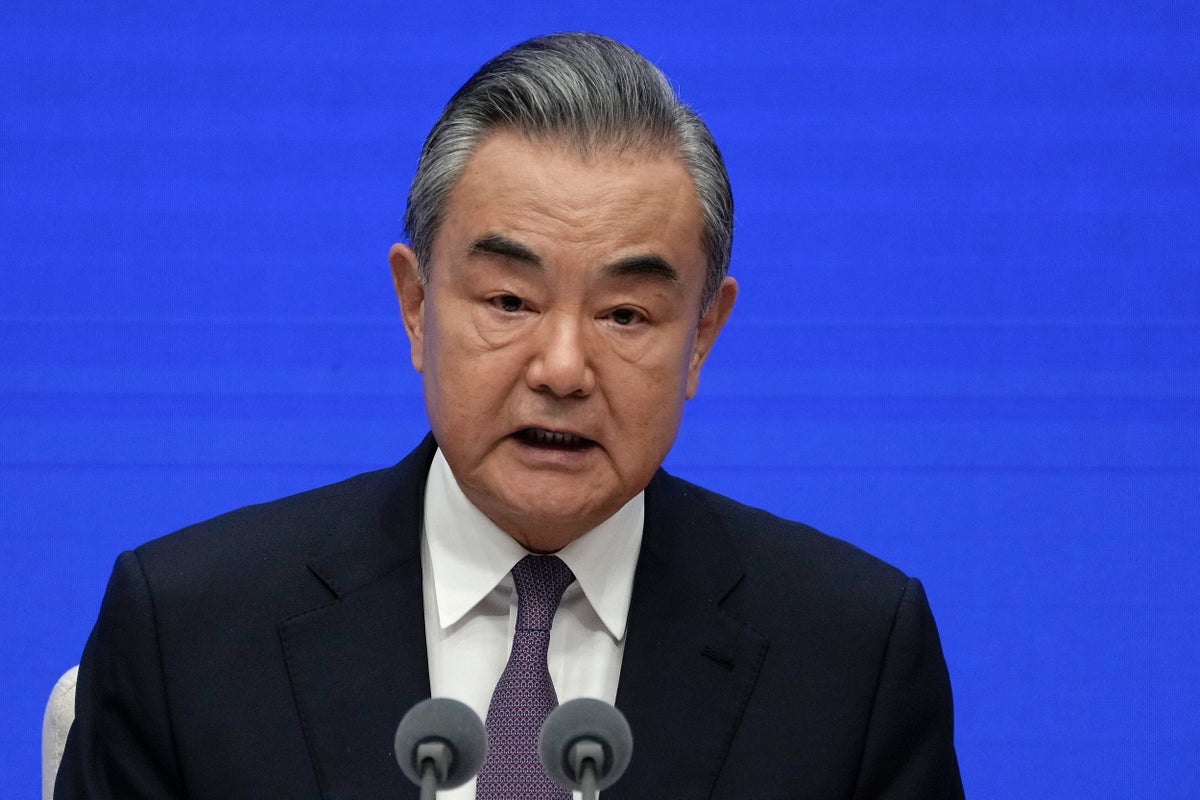
China's foreign minister called on the U.S. on Tuesday to do what it can to host a cooperative meeting of Asia-Pacific leaders in November, criticizing those who seek to play up a confrontation between democracy and authoritarianism.
Wang Yi said the Asia Pacific Economic Cooperation summit in San Francisco in November should promote cooperation rather than provoke confrontation, and said the U.S. should show fairness and inclusiveness to create better conditions for a smooth meeting.
“We should ... oppose advocating for ‘democracy versus authoritarianism’ and imposing our own values and models on others,” he said at the launch of a government report on its proposals for what it calls “a global community of shared future.”
U.S. President Joe Biden has sought to create alliances and partnerships with other democratic countries to build a more unified response to China’s growing geopolitical influence. China is a one-party state that has been ruled by the Communist Party for more than 70 years.
China has been trying to position itself as a leader of less-developed nations, saying it offers an alternative to what it has long called “Western hegemony.”
The APEC meeting is widely seen as an opportunity for Biden and Chinese President Xi Jinping to meet as the U.S. and China try to manage their rocky relationship — if the Chinese leader attends.
Xi skipped a recent Group of 20 leaders’ meeting in India, and Wang gave a non-committal response when asked if Xi would go to APEC.
“We are in communication with all parties and will make an official announcement in due course,” he said.
In Hong Kong, a Chinese territory, leader John Lee said he has not received an invitation to APEC. Hong Kong is a member of the group, but the U.S. has banned him from entering the country since 2020 for his role in enforcing a national security law that has targeted pro-democracy activists.
“According to APEC guidelines and protocol, the organizer should send an invitation to the leader of the respective economies," Lee said at his weekly media briefing. "I am still waiting for the invitation letter to be sent to me.”
Wang stepped down as foreign minister at the end of last year and became the Communist Party’s foreign policy chief. He returned as foreign minister in July, while retaining the more senior party position, after his successor, Qin Gang, was removed from office. The government still hasn’t explained what brought about Qin's downfall.







